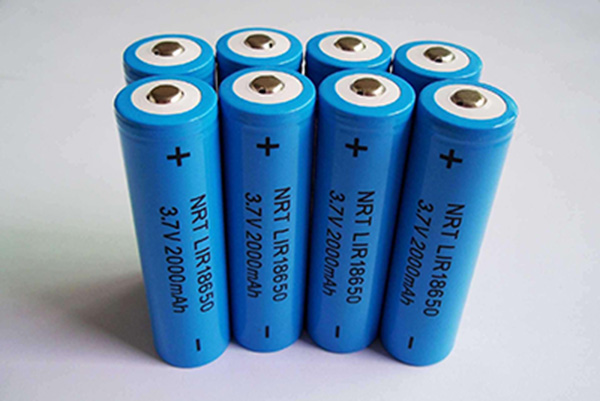Lithium Batteries in Checked Baggage-How to prepare for your trip?
Sep 30, 2019 Pageview:1876
Are you planning to travel for a long distance? Perhaps you want to go camping and must bring your camera along for capturing memorable moments. In that case, you know you have to come along with spare batteries.
In the modern world, batteries have become a vital necessity. There is so much advancement in technology with more and more portable devices coming up. And it is even most amazing how batteries have advanced.
Batteries are used to power everything. Mobile phones, cameras, laptops, toys, smart luggage, and many other items rely on batteries. Even so, there is a limit to how much these batteries can serve you.
Lithium-based batteries are the best in the industry. Lithium chemistry has taken the whole battery industry to a whole new level. But even with the most powerful ones, there is a limit to how far they can serve you without recharging.
And that is why many people come along with spares on their journey.
If you are a first-time traveler, you may not be aware of the regulations put in place by TSA. There are some batters you can carry and others you cannot carry. There is, for instance, a limit to the number of batteries you should bring along.
It is important to know these rules. It will help you avoid lengthy stops at security checkpoints saving you from throwing away your valuable. Here is a closer look at what you should know.
Can I put lithium batteries in checked baggage?
There are two common types of baggage for travelers with batteries. They include carry-on bags and checked bags. The rules for both are more or less the same. Here are some general rules;
· You can carry an unlimited number of lithium-ion battery.
· Batteries for consumer products like those used in phones, cameras, and handheld videos should be carried unlimited numbers. They, however, should not be more than 8grams or 100 watts per hour.
· Larger lithium batteries, more than 8 grams and below 25 grams of lithium contented can be carried up to two per bag.
· Lithium metal batteries. Such batteries as used in camera and personal electronics. You can carry an unlimited number as long as they contain no more than 2 grams of lithium per battery.
These rules apply for both carry-on and checked bags. However, there are a few exceptions for checked bags, as stated below:
· Uninstalled lithium-ion batteries. You may be carrying some extras. Such batteries CANNOT be stored in checked bags.
· Lithium battery with more than 100 watt-hours. Such items are not allowed in checked bags. As stated above, they should be at least installed on your device.
· Non- rechargeable lithium-metal batteries. Such batteries cannot be checked. But they will be if installed in the equipment. This is a category that is a bit tricky. Many standard batteries like AA and AAA come in the lithium metal designs.
It is important to check the types of your battery before putting them in your batteries. Certain types of lithium batteries are prohibited because of a simple reason. There have been many accidents resulting from battery explosions and fires. Such batteries are most vulnerable. In case of battery explosions, the crew may not be aware of it until serious problems occur.
You are allowed to pack your batteries and electronics in checked baggage with the exceptions mentioned above. However, TSA recommends that you put electronics containing dangerous batteries in carry-ons whenever possible. This will enable you to keep an eye on them.
Is lithium-ion battery safe in the baggage?
While lithium-ion batteries are the most powerful and long-lasting, they are the most vulnerable to explosions. As stated above, there are a few exceptions on the types of batteries to baggage. You need to check your electronics and confirm the type of batteries they contain, making sure you don’t get stuck at the check-point.
Lithium-ion batteries, which are rechargeable, have a history of explosions. When they do and are in the baggage, no one will know what is happening. Chances of them causing fires are very high, which why you should be careful when packing them.
For you to travel with such, they must be marked. A maximum Watt-hours rating is normally considered for safety. They are not safe in the baggage, and that is why regulations must be observed.
For batteries in an electronic device such as laptops, tablets, mobile phones, and cameras, they should be put in carry-on baggage. And if this is not possible, you are advised to turn off the device completely.
They must be protected from accidental activations. If there is baggage with flammable materials like perfumes and aerosols, do not put the batteries in the baggage. It is vital to protect them from damage before check-in.
Some devices containing lithium batteries are not allowed on aircraft. These include:
· Small recreational vehicles. Whether in checked or carry-on bags, such batteries cannot go on the crafts.
How to package lithium batteries for the trip
To keep you from potential loses, here are some tips to put in mind when traveling with lithium batteries:
· Buy your batteries from reliable sources. Check for the mark of independent testing such as UL and IEC. Counterfeits are most likely to explode.
· Keep spare batteries in your carry-on luggage. This is to keep an eye on them.
· Whenever possible, keep the batteries in their original retail packaging. This is to prevent short-circuiting. Or place tape across the contacts to isolate terminals.
· Keep the batteries far from another object such as other batteries, coins, keys, and jewelry.
· Be careful during packaging to avoid crushing, puncturing, or high degree pressures. Such issues can result in internal short-circuit and overheating, which may cause fires.
· For devices with batteries, completely turn them off. Then place it in a protective case to avoid accidents.
Final thought
While you may need to travel with your electronic devices, you need first to understand TSA rules. The last thing you want is losing your batteries because you packed them wrongly. We hope the tips in this guide helps you.
- Prev Article: Li ion Battery Recall – Why and How?
- Next Article: Lithium battery advances-Why you like lithium battery so much?
Leave Message
Hottest Categories
-
Hottest Industry News
-
Latest Industry News











